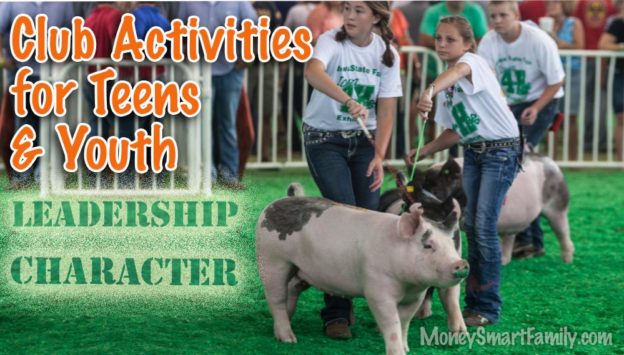Can community youth organizations and programs help develop character in a child? There are many different types of youth activities that could contribute to your child’s physical, emotional, and vocational development. We’ve been involved in a number of these organizations and have compiled a list of the 20 most popular youth organizations in the US.
If you’re looking for the names of groups where your kids can learn and grow in character and leadership keep reading …
TABLE OF CONTENTS
- 1 Discovering the Hidden Potential in a Child
- 2 Selecting an Organization with Good Leaders
- 3 How Much YOU Should Be Involved
- 4 Seven Youth Organizations That Build Character
- 5 Five Church/Religious Organization Clubs
- 6 Ten Service and Secular Organizations
- 7 Empty Nest Opportunities
- 8 Youth Organization and Activities Wrap-up
Like a majestic oak concealed within an acorn, boundless potential is wrapped up in the spirit of a child. From childhood, kids demonstrate natural interests or aptitudes for certain activities.
One of our most important jobs as parents, grandparents or concerned relatives is to help children discover and develop their latent abilities or dreams.
Some kids naturally find their forte while others, like young plants in the garden, need more tending, cultivation, and encouragement to achieve their potential.
Finding Groups That Will Help Your Child Grow
One way to determine the scope of a child’s interest is through involvement in groups where like-minded kids can interact with expert adults.
To find these experts and get your kids involved, you must look beyond activities that merely keep your kids occupied, entertained, or out from underfoot — you must look for groups that help develop character.
Valuable Character Qualities
Developing character qualities such as trustworthiness, loyalty, kindness, helpfulness, honesty, diligence, self-motivation, determination, thriftiness, and respect for authority are vital to success in life. Your children should be learning these things at home, but participation in a club setting can reinforce parental instruction.
What Age Should Community Youth Programs Start
You’ll need to determine when your child is most ready for a youth organization. We didn’t allow our kids to join organized group activities until they were about 8 years old. We’ve found that most younger kids need more time to play, do chores, read books and just be children.
Involvement in too many organized activities can rob young children of the time to be creative and play on their own.
Selecting an Organization with Good Leaders
When John, our eldest, was young, we naively thought that any adult leader selected by a church or youth organization would have a positive influence on him.
Boy, were we wrong.
An organization’s reputation for wholesome leadership doesn’t necessarily guarantee that the volunteer help in your area will adhere to the same standards.
The first Boy Scout troop we were involved in looked great on the outside, but we learned that two of the leaders ridiculed kids who practiced personal hygiene — brushing teeth or washing hands — which undermined the habits we were teaching at home.
“Look,” they’d say, “your mom isn’t here, so don’t bother brushing your teeth or changing your underwear.”
We’d worked hard to instill these habits in John and to have a respected authority figure in his life tear them down really disturbed us. Additional issues eventually led us to leave this troop. Trying to undo opposing values is stressful and time-consuming.
No matter the group, you need to keep your parental antennae poised to determine the integrity and character of the leaders.
How Much YOU Should Be Involved
We decided that it was best for one of us to attend most meetings of groups with our kids. As a result, we became involved in the leadership of these programs … as our time allowed.
Parental involvement not only helps the group but also helps us get to know the leaders better. If we were really busy, we would take on short-term projects, such as specific fund-raisers, rather than roles, such as treasurer.
Seven Youth Organizations That Build Character
Following are the youth programs in which we’ve been involved.
1. Boy Scouts of America
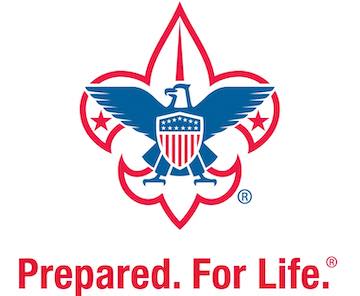
Aside from our initial experience, we’ve seen great value in our sons’ involvement with scouting. Whether your child is an intellectual type or a more outdoorsy type, scouting can fit his gifting.
Our son John loved the camping, hiking, and getting dirty part of scouting.
Our second son, Roy, loved the academic or merit-badge side of scouting. He took every opportunity to investigate and complete a new merit badge.
Our youngest son, Joe loved the leadership aspect. He trained younger scouts and led groups at summer camp as well as an honor patrol.
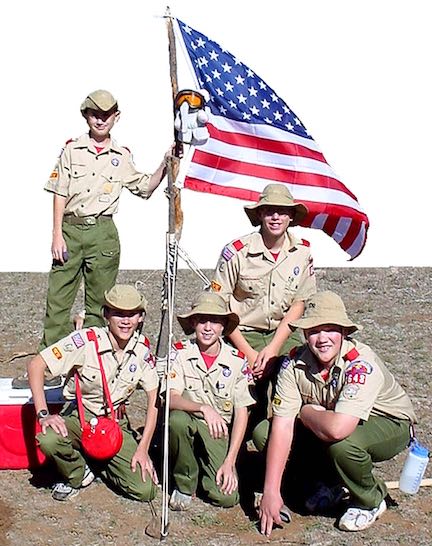
Despite our three sons’ differences, all of them achieved success in scouting. John obtained the rank of Eagle in 2001, Roy in 2005, and Joe in 2008.
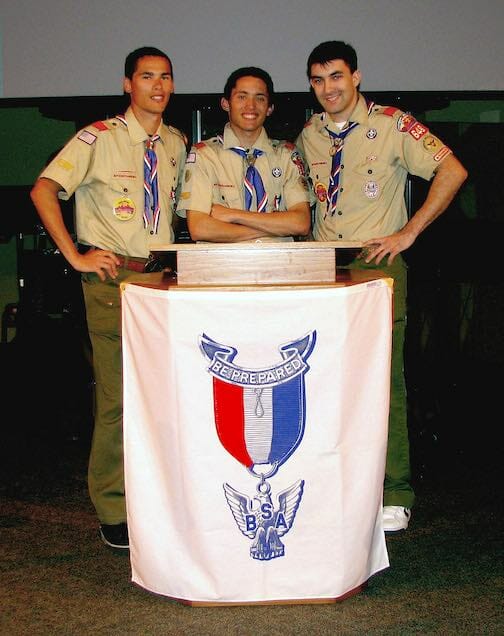
Scouting teaches character as well as outdoor survival skills, first aid, basic cooking, orienteering (using a compass), patriotism and the acknowledgment of faith.
Most troops have outings one weekend each month. Steve didn’t make it to every campout, but the boys went almost every month.
With scouting’s consistent leadership-training program, their meetings nationally are fairly standardized, but each troop has different emphases based on the leaders’ and scouts’ backgrounds and desires.
We interviewed five scoutmasters before we settled on our last troop.
Abuse in Scouting and Other Groups
We know that there have been a number of former scout troop members who have come forward as adults and accused some leaders of sexual misconduct. We never saw or heard of any of this in the troops we were involved in. However, we did see some abuse of power and verbal inappropriateness in the first troop we were involved in.
These types of issues can happen in any group activity, which is why we always encourage parents to be involved … and to be watchful.
To protect our kids, Annette did careful research about the troops and the leaders. She attended a meeting before our boys did.
Call your local Boy Scout district office and ask for a list of troops in your immediate area. They should be able to provide you with names and phone numbers.
There are college scholarships offered through Boy Scouts for boys who reach the rank of Eagle Scout.
Website: Scouting.org.
RELATED ARTICLE: How to Find Scholarships and Grants for College
2. 4-H

Our youngest daughter, Abbey, joined a 4-H clogging group when she was 9 years old. Clogging is a cross between tap and square dancing. The shoes they use have a double-tap and produce a sweet sound as Abbey’s feet clatter across the floor.
They have a practice and training time once each week. The group performs in several exhibitions each year at places such as nursing homes, the state fair, the county fair, and a harvest festival. These exhibitions are where they learn the value of teamwork and practice.
They also hold a monthly meeting run by the student dancers who are elected by the other kids in the club. Participants learn leadership through the administration of the monthly meetings and by teaching younger students the various dance routines.
RELATED ARTICLE: Family Teamwork – How to Accomplish More
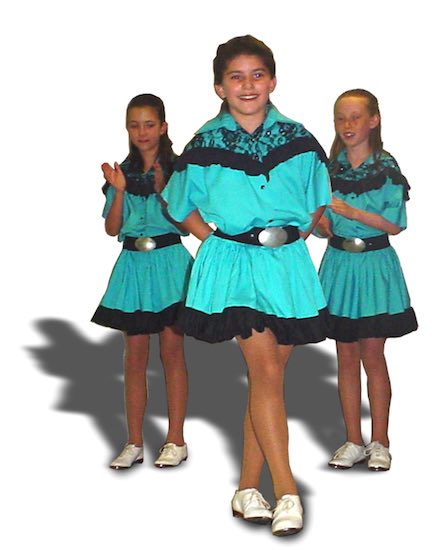
We were involved in another 4-H group for horseback riding and found that the leader was trying to recruit kids for her riding school. And there were so many fees and other costs that it didn’t work for our family. So, once again, the value of the organization is determined by the quality of the local leadership.
Abbey eventually became involved in the state-wide 4H leadership training program. She was part of a group that planned the annual summer camp training program. They not only helped train the younger kids but also performed other service projects for our county and state throughout the year.
There are college scholarships that can be applied for by 4H members.
Website: www.4h.org.
3. Congressional Award
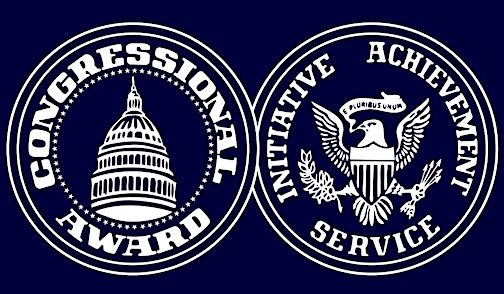
Our eldest daughter, Becky, participated in the Congressional Award Program which is based in Washington, D.C.
The Congressional Award provides a great opportunity for young people ages 14 to 24 to set and achieve challenging goals in the following areas:
- Community Service
- Personal Development
- Physical Fitness
- Citizenship
To achieve the highest rank, the Congressional Award Gold Medal, a student must perform:
- 400 hours of volunteer community service
- 200 hours of physical fitness
- 200 hours of personal development
- 7-day exploration or expedition
In total there are six levels of achievement based on varying hours of work and service:
- Bronze Certificate
- Silver Certificate
- Gold Certificate
- Bronze Medal
- Silver Medal
- Gold Medal
When a young person achieves the Bronze and Silver medal levels a member of your U.S. Congressional delegation will personally award the medals. The Gold medal is presented annually, in June, in Washington, DC, by the U.S. Speaker of the House, to qualifying students.
We did attend the Washington, DC award ceremony and cheered for Becky as she received her Gold Medal. We also enjoyed a fabulous family vacation as a result of this event.
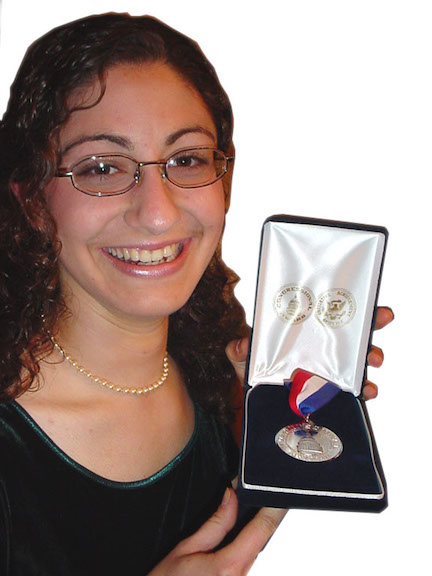
Website: CongressionalAward.org
4. Civil Air Patrol Cadet Program

John was involved with our local wing of the Civil Air Patrol (CAP), an auxiliary of the U.S. Air Force, for two years. Unfortunately, the leadership was very poorly organized and treated the kids unfairly.
The leadership has since changed for the better.
Civil Air Patrol teaches leadership skills, military education and basic aviation training for young men and women ages 12 to 21.
Many kids use CAP as a springboard for attending the U.S. Air Force Academy.
Other military cadet training programs are run similarly to CAP. The ones we are aware of are Naval Sea Cadets, Marine Cadet Corps, and Junior ROTC.
Website: www.gocivilairpatrol.com
5. Police Explorers

John was also a part of the Scottsdale Police Explorers. At one time he was interested in pursuing a career in law enforcement as a police officer.
This was another unfortunate situation in which the leadership and their double standards did more to discourage his desire than to fan the flame.
He would come home shocked and angry at things that had been said or done and the hypocrisy he saw in some of the leaders. This group was very private about what happened at meetings and discouraged parents from being involved.
These experiences led to many discussions about the frailty of men and women when they have power and authority at their command.
We reminded John that becoming and remaining a man of character was much more difficult than just going with the flow of society.
6. Sports Teams
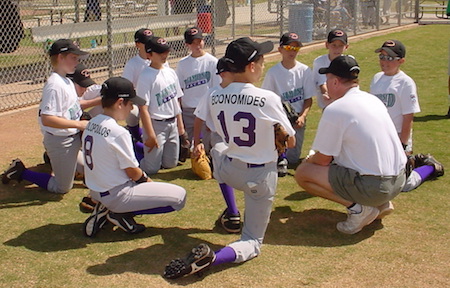
Competitive sports and the discipline they teach are valuable, provided that the coaches espouse proper values. The “Win at All Costs” paradigm some coaches maintain taints amateur sports.
Joseph, our youngest son, loved baseball and played competitively all the way into college.
Steve and Roy have helped coach many of Joseph’s teams — it’s one way of knowing who the coaches are and what they teach. But involvement in an athletic team puts a lot of stress on the family schedule.
A few years ago Steve was talking with one of the assistant coaches on Joe’s team who had three kids in Little League. He told Steve that with all his kids’ games and practices, he basically “lived at the field.”
Competitive sports can be really disruptive to the family dinner hour (read more about family mealtimes here).
Because of the large time commitment we were hesitant to encourage our kids to be involved in club sports. If you have only one or two kids, the time commitment may not be as big an issue. But for us with our family size, it was a serious consideration.
It’s hard to imagine what would happen if we had more kids involved in team sports. We always take things with us to work on during practices and games — balancing the checkbook or budget, working on the newsletter, or clipping coupons.
Other Youth Organizations & Activities that Encourage Character Development
We can’t possibly have expertise in the many hundreds of groups out there, but we want to mention a few others to help stimulate your thinking:
7. School-Based Clubs
Public and private schools can provide several opportunities for group activities that build character. Here are several we’ve heard of or experienced.
- Math Club
- Chemistry Club
- Foreign language clubs
- School Newspaper or Yearbook
- Sports Teams
- Drama Clubs
- Choral Clubs
Five Church/Religious Organization Clubs
Many religious organizations have put together organized clubs to help kids learn and grow in specific areas.
- AWANA – club activities for young protestant kids. They have 3 levels:
- Cubbies – preschool
- Sparks – Kindergarten – 2nd grade
- Truth & Training Club – 3rd grade – 6th grade
- Conquest! Boys Club for Catholic youth K-12
- Young Judea Zionist Movement Club activities for young Jewish youth from 3rd grade to college and beyond. They offer a fun, safe, social environment that also includes a distinct focus on education, leadership, and social action.
- Church Choirs or Praise Bands
- Mission Trips – Many churches and religious organizations plan local, regional and overseas service projects. These are great opportunities to help others and learn about new cultures.
Ten Service and Secular Organizations
- Boys & Girls Clubs – clubs are located in most large cities across the country. They don’t have many organized training programs, but they do provide mentorship.
- Future Business Leaders of America – inspires and prepares students to become community-minded business leaders in a global society through relevant career preparation and leadership experiences.
- Future Farmers of America – a dynamic youth organization that changes lives and prepares members for premier leadership, personal growth, and career success through agricultural education.
- Girl Scouts – Designed for girls ages kindergarten to 12th grade. Clubs include Daisies, Brownies, Juniors, and Girl Scouts.
- Junior Achievement – their programs help prepare young people for the real world by showing them how to generate wealth and effectively manage it, how to create jobs that make their communities more robust, and how to apply entrepreneurial thinking to the workplace.
- Kiwanis Clubs – Steve’s Dad was involved in a lot of fundraisers for Kiwanas clubs in the Chicago area. They don’t have many organized training programs, but they do provide mentorship. Kiwanis sponsors three types of kids clubs:
- 2. Builders Clubs – to build leaders
- 3. Key Club – High school leadership and service.
- 4. 3-2-1 Clubs – Meet less often to lead, learn, and serve.
- National Honor Society – More than 1 million students currently participate. They share a commitment to the values of scholarship, service, leadership, and character.
- National Junior Horticulture Association – challenging youth to become the horticultural leaders of tomorrow.
- Toastmasters – (public speaking) They have a youth speaking program.
- YMCA Youth and Government is a great way to learn about the legislative process.
Empty Nest Opportunities
If you are retired or have an empty nest, please consider using your time and talents to influence kids. Some of the wisest and kindest leaders we’ve encountered are those whose kids are grown and gone.
Roy played in a community band where some wonderfully helpful seniors — some as old as 90 years old —offered tips to help him improve his trumpet playing.
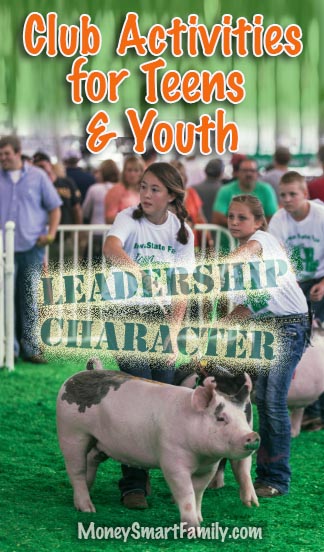
Youth Organization and Activities Wrap-up
As you can readily see there are clubs and activities for everyone. When kids excel in something they love, it stabilizes them much like roots do a tree.
Helping your children find a club activity they are good at will be a huge boost to their self-esteem and mental health.
The stronger and deeper they grow, the more they will be able to withstand the gales of the culture that swirls about them.
We need more noble, majestic, straight-growing trees in the forest of our nation. Character counts!

